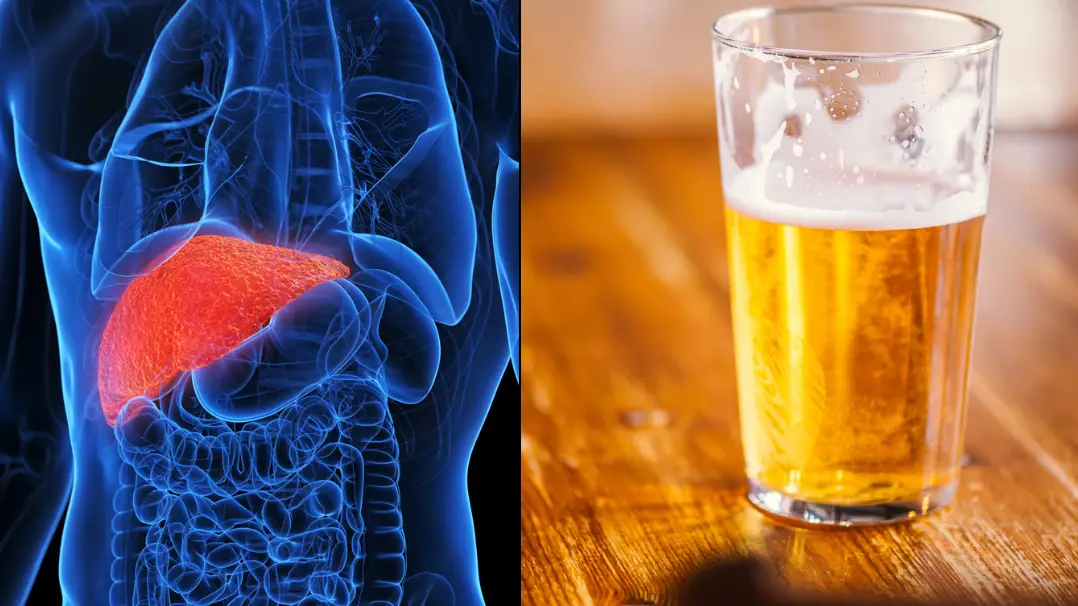
If you're feeling a little bit gross about how much drinking you've done over Christmas, you might be considering Dry January.
Dry Jan sees people quitting booze during the month of January, following an over-indulgence over the festive period.
The campaign was first started by Alcohol Change UK to encourage people to consider how much they're drinking and whether their relationship with alcohol is a healthy one.

Advert
Many people take part in Dry Jan to have a New Year detox from the effects of drinking. As we know, excessive alcohol intake can lead to some unpleasant symptoms, as well as - in severe cases - something called alcohol-related liver disease (also referred to as ARLD).
If the liver has been severely damaged, you might experience symptoms including nausea; weight loss; loss of appetite; yellowing of the eyes and skin; swelling of the ankles and tummy; drowsiness and vomiting blood.
Even drinking a large amount over a few days can have an impact, leading to a build-up of fat in the liver.
The NHS explains that fatty liver disease rarely causes symptoms, and is actually reversible.
"If you stop drinking alcohol for 2 weeks, your liver should return to normal," it says.
Essentially, if you've been overdoing it over Christmas, your liver could be back to 'normal' by mid-January.

But there are some exceptions. According to the Cleveland Clinic, it could take a little longer.
“There is no ‘one size fits all’ answer,” said Dr Christina Lindenmeyer.
“It depends on how much damage has already been done and any possible complications.”
They explain that a two to four-week abstinence from alcohol helps reduce inflammation in the liver, however, if your liver has suffered from the long-term effects of alcohol, doctors may recommend you ditch the booze for good.
“For patients who are left with cirrhosis after severe injury to the liver from alcohol, even one drink of alcohol is toxic to the liver,” Dr Lindenmeyer added.
Cirrhosis is where the liver has become scarred. It's not usually reversible but stopping alcohol can help prevent any further damage.

If you're concerned about your alcohol intake, one doctor has revealed the main question you can ask yourself to help determine if your relationship with booze is unhealthy.
Speaking to LADbible, Dr Donald Grant, GP and Senior Clinical Advisor at The Independent Pharmacy explained: "Typically, it takes a while before people notice their own dependence, but spotting it early can limit long-term health risks and help people take control of their lives.
"One of the main questions people should ask themselves is ‘Do I generally end up drinking more than I originally planned?’ As this can be a massive indicator of unhealthy dependence.
"Struggling to have only one drink can suggest a mental dependence on drinking and is a major symptom experienced by many alcoholics."
Please drink responsibly. If you want to discuss any issues relating to alcohol in confidence, contact Drinkline on 0300 123 1110, 9am–8pm weekdays and 11am–4pm weekends for advice and support.
Topics: Alcohol, Food And Drink, Health, Dry January
